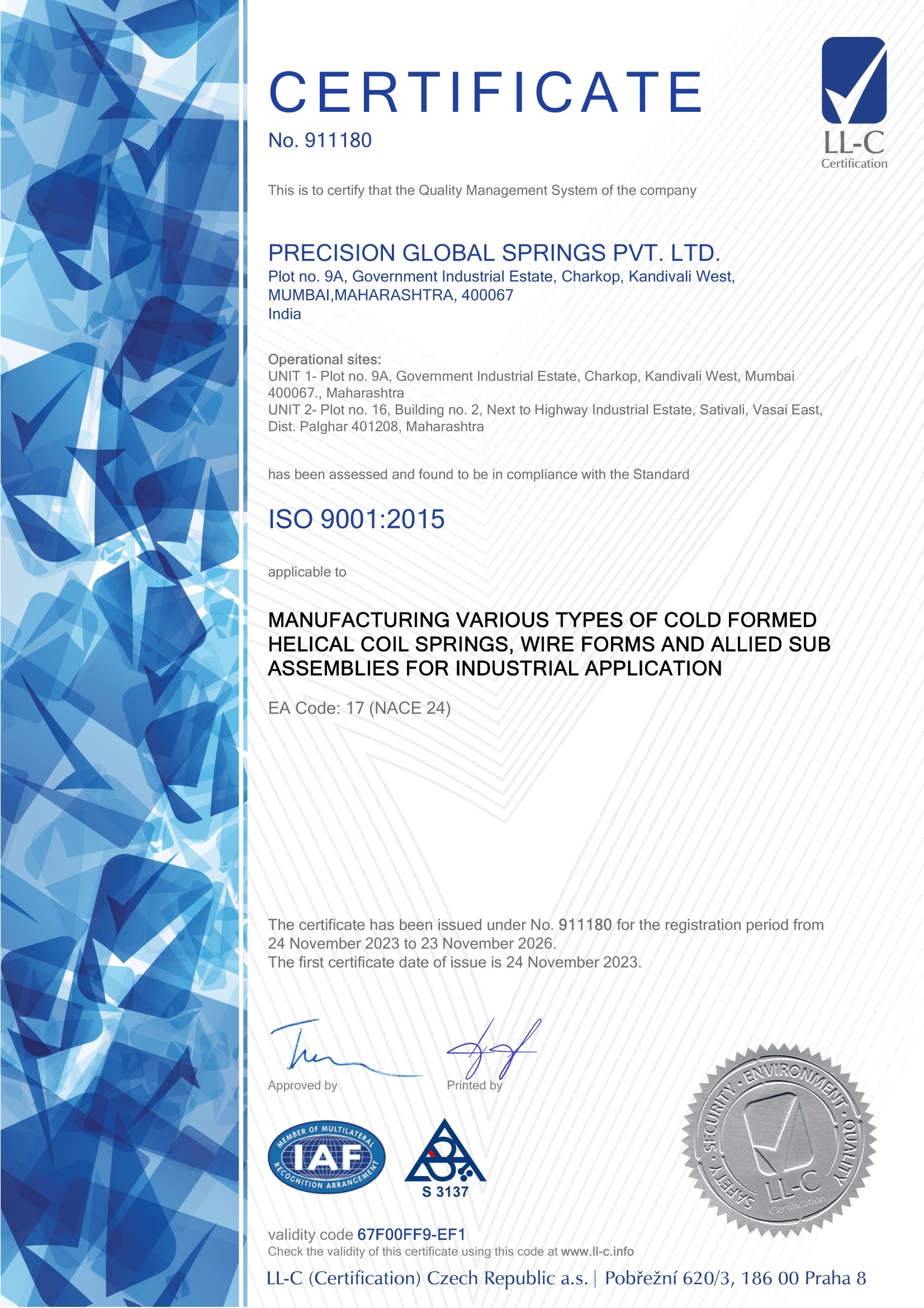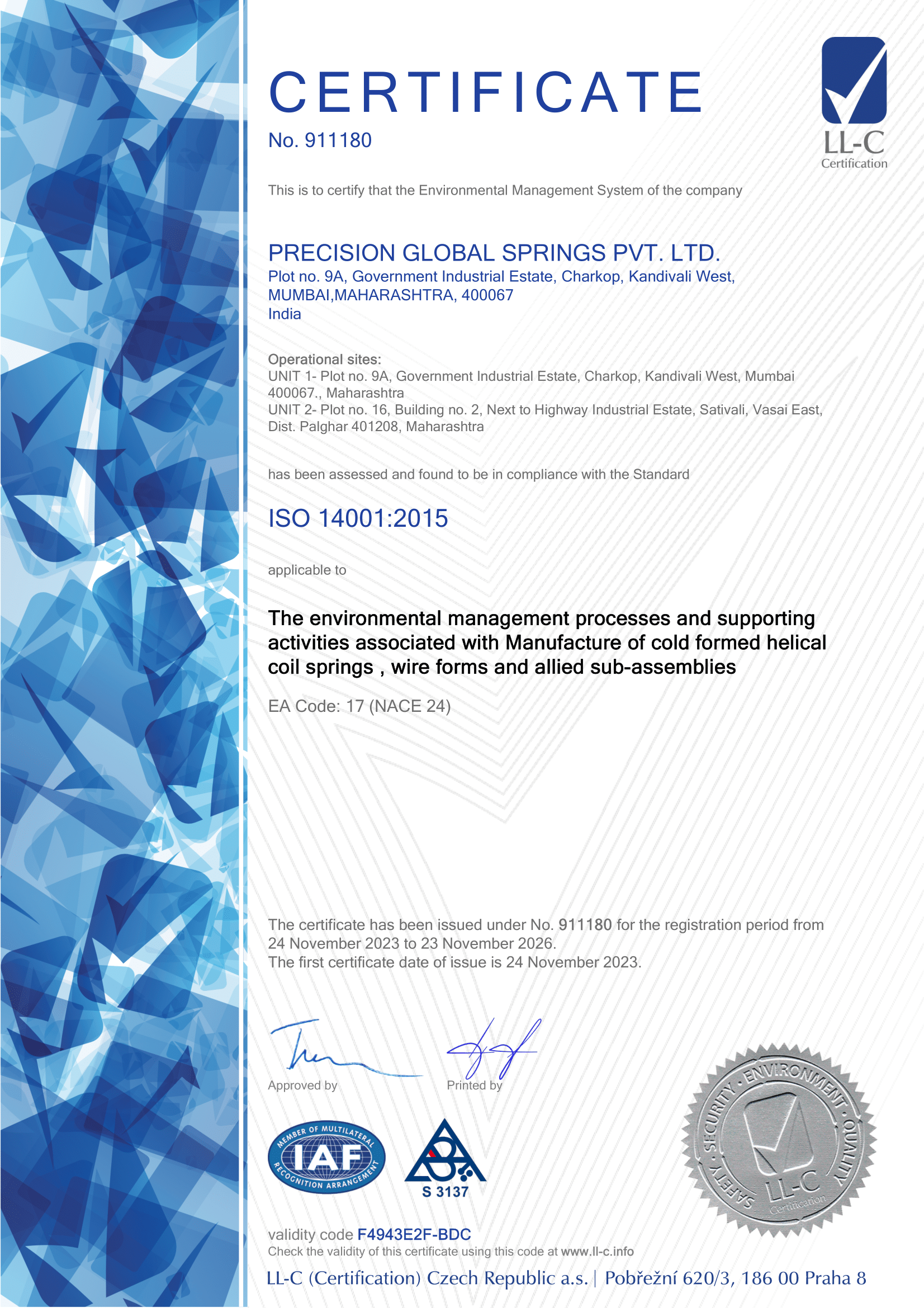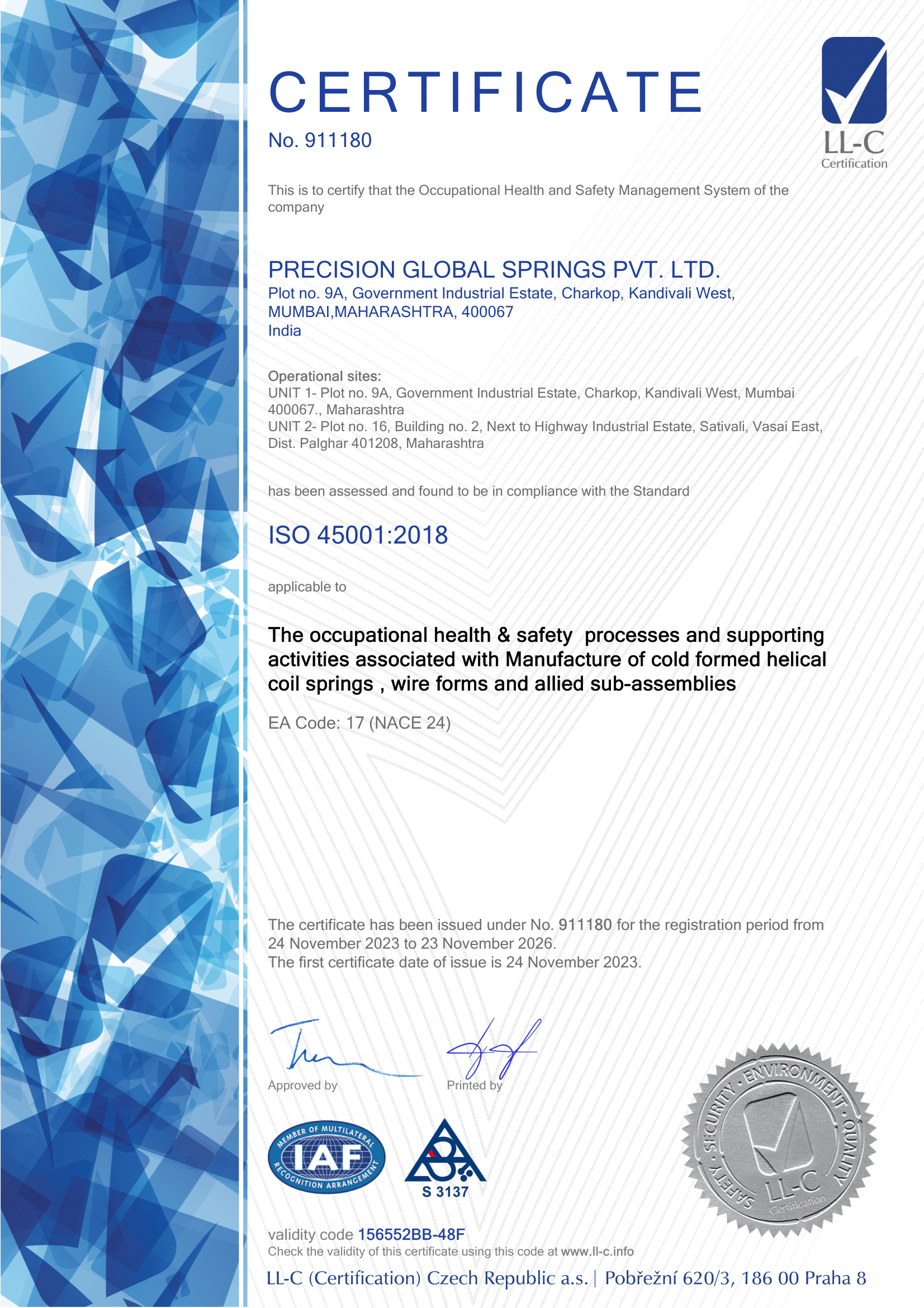The Crucial Role of Raw Materials in Spring Manufacturing: Impact on Performance
Introduction
Springs are omnipresent in the world of engineering and manufacturing, serving a wide range of applications from automotive suspensions to aerospace components and beyond. While the design and manufacturing processes of springs are crucial to their performance, the often-overlooked factor that plays a pivotal role in determining their efficacy is the choice of raw materials. In this blog, we will delve into the significance of raw materials used to make springs and their profound impact on spring performance.

Selecting the Right Raw Material
The type of raw material used in spring manufacturing can significantly affect the spring’s performance characteristics, including strength, durability, resilience, and fatigue life. Common materials used for springs include various grades of steel, titanium, and even non-metallic materials like polymers. The choice of material depends on the specific application, environmental conditions, and required performance parameters.
- Steel Alloys: Steel is the most commonly used material for spring manufacturing, owing to its excellent combination of mechanical properties and cost-effectiveness. Various steel alloys are chosen based on their tensile strength, fatigue resistance, corrosion resistance, and formability. Some of the most frequently employed steel alloys include:
a. Spring steel wire (ASTM A228): Known for its high tensile strength and excellent spring properties, music wire is used for applications where performance is of utmost importance. This material offers superior fatigue resistance and can endure millions of cycles without deformation.
b. Oil-Tempered Wire (ASTM A229): Oil-tempered wire is chosen for its good balance between strength and flexibility. It is often used in automotive and industrial applications where durability and resistance to sagging are critical.
c. Stainless Steel (e.g., 17-7PH): Stainless steel springs are ideal for applications where corrosion resistance is essential, such as marine environments and medical devices.
- Nickel Alloys: Nickel alloys, such as Inconel, Monel, and Nimonic, are renowned for their exceptional resistance to corrosion, heat, and extreme environments. They are often chosen for critical applications where exposure to aggressive chemicals or elevated temperatures is a concern. The use of nickel alloys ensures a long service life in harsh conditions.
- Copper Alloys: Copper alloys, like phosphor bronze and beryllium copper, are known for their excellent electrical conductivity and resistance to wear and corrosion. They are frequently utilized in electrical components, switches, and connectors where reliable conductivity and spring performance are paramount.
- Non-Metallic Materials: In some specialized applications, non-metallic materials like polymers, fiberglass, and composites have been gaining prominence. These materials are selected for their lightweight properties, resistance to corrosion, and electrical insulation. However, they are less common in high-stress, heavy-duty applications compared to metal alloys.
Impact on Performance
The choice of raw material has a direct impact on various performance aspects of springs:
Strength and Durability: Steel alloys, such as music wire, provide exceptional strength and durability, making them suitable for applications that require a long service life under high loads.
Fatigue Resistance: The fatigue life of a spring is influenced by the raw material’s ability to withstand repeated loading cycles without permanent deformation. Music wire and oil-tempered wire are renowned for their outstanding fatigue resistance.
Corrosion Resistance: Nickel alloys and stainless steel are ideal for applications prone to corrosion, while copper alloys excel in electrical components where conductivity is paramount.
Temperature Sensitivity: The thermal characteristics of raw materials, including nickel and copper alloys, can impact the spring’s performance in extreme temperature conditions, ensuring reliability in high-temperature or chemically aggressive environments.

Conclusion
Selecting the right raw material for spring manufacturing is a critical decision that directly influences the spring’s performance and service life. Engineers and designers must carefully consider the application requirements, environmental conditions, and budget constraints when making this choice. A well-informed material selection can enhance the efficiency, reliability, and longevity of springs, ensuring they continue to serve as vital components in a wide array of industries.



